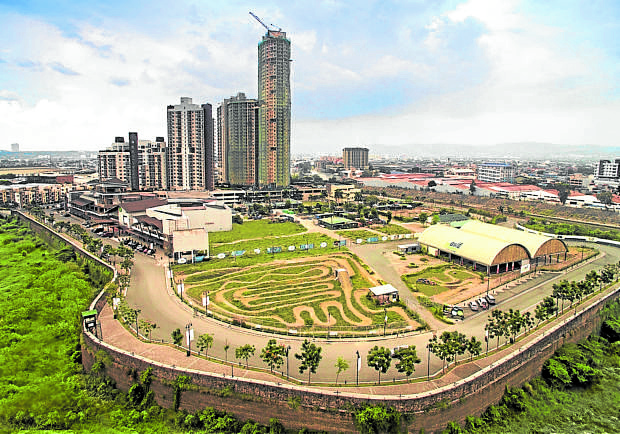
The deadly COVID-19 contagion, which continues its tight grip on economies globally, has since slowed down all economic activities, halted many operations and even caused business closures across industries. Such a sweeping, crippling impact had no doubt put a severe strain on companies’ financial health, while testing leaders and their skills, acuity and quick thinking.
But while no business may have been left unscathed by this pandemic, some managed to respond better to the needs of these challenging times. An 89-year-old property developer, for one, has had the benefit of experience, hindsight and keen foresight that allowed it to keep pace with the pandemic and remain resilient during this challenging period.
Blueprint for recovery
Ortigas Land, one of the pioneers in Philippine real estate, has managed to admirably navigate through the COVID-19 contagion, as it did with many of such crises throughout its close to nine-decade history.
“This resilience is due mainly to the time-honored principles it has adopted and continues to apply in dealing with crises of this proportion. These principles revolve around preserving the value of the company, strengthening its ability to weather the challenges, and preparing itself and the organization for the eventual recovery,” Jaime E. Ysmael, president and CEO of Ortigas Land, said in an interview with Inquirer.
“Key to this strategy is to ensure that the company protects and enhances its assets, which include not only its balance sheet and its landbank, but equally important, the welfare of its various stakeholders—its customers, its employees, its supply chain and the communities where it operates. By adopting this holistic and long-term view, we ensure that the key elements of the recovery plan—our key assets—are preserved and strengthened, so we can draw on them as we implement our blueprint for recovery,” Ysmael explained.
During this period, Ortigas Land also made sure to accelerate its efforts to further improve customer experience at all touchpoints, apart from ensuring a healthy balance sheet and continuing with the planning of new projects to ensure launch readiness when the market turns.
According to Ysmael, a significant aspect of this thrust involves increasing the pace of digital transformation. Hence, Ortigas Land has created a Customer Care Department and has used digital technology in almost all aspects of the business to ensure better customer service, increase operating efficiency and reposition itself to better play under this “low touch economy” that has become the norm amid this pandemic.
Like most businesses, however, Ortigas Land had to remain cautious and prudent amid these difficult times. Admittedly, the seasoned property developer had to defer launches and postpone major capital expenditures for this year.
“This year is all about preserving the value of the company, keeping its financial health intact and preparing for the eventual recovery. The economic conditions are not normal and are not ideal for major commitments, as our focus as a company is to navigate through the challenges brought about by the crisis… We have, however, continued planning of new projects to ensure they we are ready to launch once conditions improve,” Ysmael said.
A question of how soon
Fortunately, there are early signs of economic recovery as latest government data would show—from the growth in foreign direct investments in May, rise in remittances sent by expatriate Filipinos in June, to the easing of unemployment rate in July. Add to these the government’s proposed 2021 national expenditure program, as well as fiscal and infrastructure stimuli that will help the country reset, rebound and recover.
While much has yet to be done and accomplished for the country to fully recover from a recession, these positive signs offer a sliver of hope for industries such as real estate.
Ysmael similarly believes that although conditions remain challenging, there are emerging signs of improvement in the various sectors of the industry with the easing of restrictions. He however stressed that it is important to restart the economy to restore jobs and livelihood, while continuing to contain the spread of the virus. It is likewise important to bring confidence back, so consumers will start spending and businesses will start investing again.
“We see growth starting to manifest again next year albeit at a gradual pace, as things hopefully normalize and industries come back to life. Of course, this scenario is based on the assumption that we will be effective as a country in managing this health crisis,” he said.
“The Philippines is a young and vibrant emerging country, which has been one of the fastest growing economies in the world. All our competitive advantages as a country remain intact. The Philippine real estate industry, to a certain extent, is a mirror image of the economy, so there is no question if we will recover—it is just a question of how soon,” Ysmael concluded.